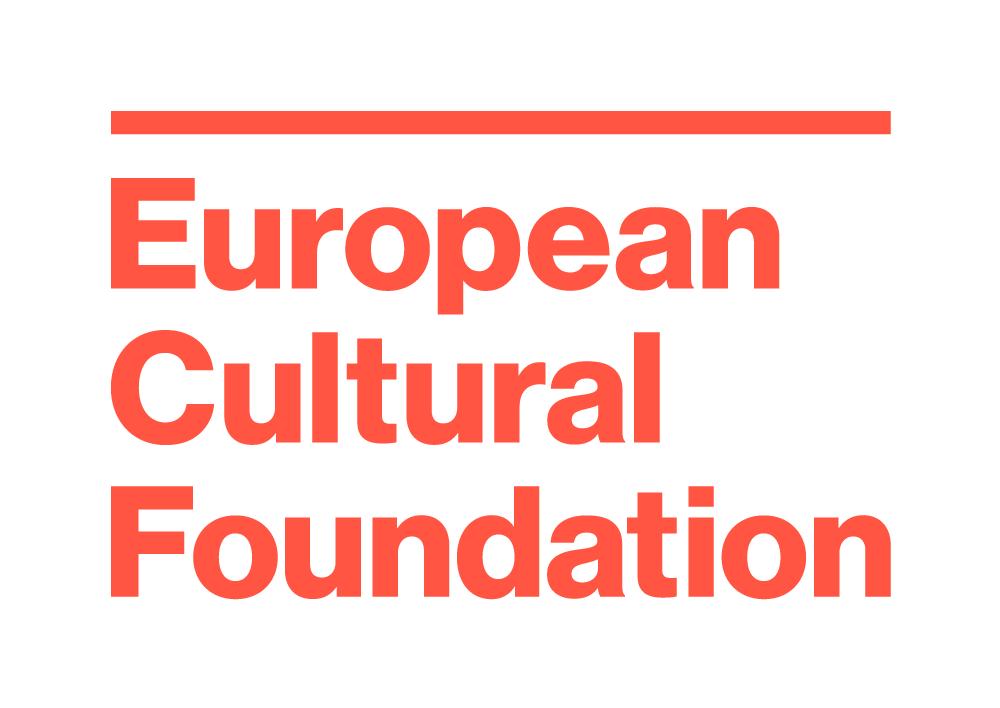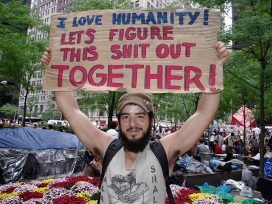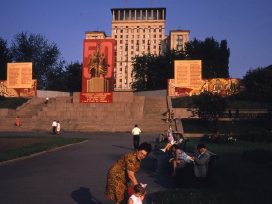Strangers when we meet: Identity and solidarity
The urgency of global challenges such as climate change and the need for collective action might be expected to reduce the importance of identity politics and questions of difference. Yet it remains the case that there is no neutral conception of humanity for us all to belong to. Roshi Naidoo considers the options for fashioning new languages of solidarity.
This is a hideous problem. Never in the history of humanity have all the people of the world got together to deal with one particular problem and agree on what the solution should be. Never, ever, has that happened before. David Attenborough on the Paris climate talks, BBC Radio 4, 30 November 2015
In the film The Day the Earth Stood Still (1951) the people of the world are forced to confront their impending destruction by the arrival of the alien Klaatu, who informs them that they will be destroyed by forces outside the planet if they don’t buck up their ideas and stop their warmongering ways. His attempts to address all the people of Earth, and not just representatives from one government, are met with scepticism from the lone man sent to liaise with him. Klaatu is informed that the suspicion and hostility between nations means that there can be no agreement between them, even if that results in the end of the Earth.

On Saturday 12 December 2015 at 18:25, the Paris Agreement was adopted at COP21 in Paris. Photo: Benjamin Géminel. Source: Flickr
The COP21 climate change summit in Paris in 2015 had a feel of this cinematic moment, with nations pushing competing economic and political agendas and differing ways of interpreting the available scientific data. Climate change, for many experts and activists, is not a future event: it is happening now and therefore should be a primary focus for all governments and supra-national agencies. The failure to properly acknowledge this and develop genuine global solutions brings with it an anger and hopelessness that sometimes has unforeseen effects. It has led some to question whether perhaps this is a time to embrace our common humanity and not dwell on our differences: thinking about identity may dilute our ability to forge solidarity, make common purpose and work towards collective ends. In the context of impending ecological Armageddon, identity politics can appear to be a luxury that one can forego – a micro-political issue that fades into insignificance in the face of the macro. A focus on identity may in the end leave us like the hapless people of Earth in the film, too stupid and divided to avoid the end of everything. There is currently much debate in political theory about the possibility of global solidarity, and the relationship between its affective and cognitive foundations, a great deal of which draws on the work of Hannah Arendt. My intention here, though, is not to engage specifically with this debate, but instead to consider how popular understandings of this supposed conflict between the demands of identity and the positing of a collective humanity circulate in the media, and in common- sense understandings of what is at stake. “Common sense”, of course, is ideological and therefore pliable. The idea that too much difference is destroying us circulates beyond discussions of global issues, both in blatantly reactionary and in more respectable circles; and it often comes with the assumption that a focus on difference not only compromises our ability to be united in our humanity, but also oppresses others, particularly those who once occupied a more privileged place in the world.
What difference does it make?
This sense that there are more important issues than identity is compounded by the view among large swathes of the UK population that issues of racism, sexism, homophobia and other forms of “prejudice” have either been resolved or are slowly improving in an upward trajectory. As a result, attempts to situate these experiences within an understanding of “ethnocentricism”, “patriarchy” or “capitalism” can be met with sighs and raised eyebrows. We should be “post” such things and able to just get on as people. Those who do contextualize issues of difference in this way can become positioned as somehow anti the development of a collective human spirit; and even activists who acknowledge the links can be gripped by embarrassment at the flagging up of persistent institutional inequalities and the palpable, visceral and actual violence that reflects the everyday experiences of so many. The history of identity politics in Britain in the last forty years or so is vast, complex and difficult to characterize or summarize through a single lens or a neat set of theoretical observations. Even the languages used to discuss issues of race, gender, sexuality, disability, class, migration, etc., are contingent on the political spaces and academic disciplines within which they operate, as well as on the myriad ways in which everyday experiences, both of enforced “otherness” and of spaces of solidarity, are negotiated. Despite this – and whether we talk about the issues in terms of the politics of difference, new social movements, intersectionality, anti-racism or new waves of feminism – one can say that identity politics (conceived in its broadest sense) has tried to make connections between disparate forms of struggle, and to find common languages to make sense of different but related exclusions. And yet over the years some forms of identity politics have been criticized on the grounds that they have increasingly become decoupled from an economic analysis, and as a result have made forming those connections more difficult. The argument goes that a shift towards languages of personal freedom rather than collective struggle has made it harder to understand the shared economic basis of forms of inequality, and therefore harder to translate these connections into popular parlance, leaving groups effectively siloed in single-issue politics. One evident response to this is that this is quite a difficult generalization to make, given that the ways in which languages of liberation have navigated between the personal and the political have been complex and multi-layered, and not easy to characterize as either having succeeded or failed in this respect. It is certainly possible to identify ways in which popular understandings of difference have become detached from more structural analyses of power and oppression, but I would not attribute this entirely to the failures of identity politics. This observation could well be borne out by the daily instances of media furore about whether or not a given person has exhibited signs of being racist, sexist, disablist or homophobic. Such stories do indeed seem to begin and end with a judgement about whether the person in question as an individual can be either forgiven or demonized for their mistaken utterance. This is the prevailing discourse in media discussion on these issues. Contestants for Celebrity Big Brother even appear to be chosen on the proviso that one of them says something offensive, so that the other housemates and the audience can then have the catharsis of the offender being castigated and cast out. Similarly, when actor Benedict Cumberbatch was recently pulled up for using the word “coloured” in a discussion about the lack of opportunity for black actors, the main focus of the coverage was on whether or not Cumberbatch himself was a “racist”, with his friend and fellow actor David Oyelowo coming to his defence to tell us he was not. Yet what was more important here was not to examine Cumberbatch’s own views, but to take note of the circles he moves in, where such vocabulary still exists – especially when one of those circles consists of people working in film and television, an industry currently, yet again, under scrutiny for its lack of diversity – something to which, ironically, Cumberbatch was trying to draw attention. An instant such as this is characterized as a faux pas, rather than as an alarm bell that should lead to a deeper discussion. As a result of this kind of reporting, the public are denied the analytical tools to contextualize race and racism, and such moments are figured as singular incidences of ill-advised remarks. How can we make sense of collective violence – as reflected, for example, in the multiple killings of African American people in the USA at the hands of the police and vigilantes – if racism and sexism are seen as problems that exist only in the heads of unenlightened individuals? Some social media storms, however, have utilized individual episodes, often through humour, to connect a specific view highlighted in the media with the everyday experiences of those who have to continually deal with the offensive attitude in question. For example, the twitter hashtag “distractingly sexy”, set up in response to comments made by Tim Hunt of University College London about women working in laboratories, amusingly parodied his remarks, but also succeeded in drawing attention to the low proportion of women working in science, and the “everyday sexism” faced by those who do. Similarly the phrase, “Damonsplaining” – coined in response to Matt Damon when he talked over the experienced film producer Effie Brown (a black woman) on the programme Project Greenlight, to explain that diversity was about casting and need not extend to production or direction – has provided a useful opportunity for black feminist theory and politics to engage a younger audience of women.1 My favourite tweet from that was: “Can Matt Damon tell me why the caged bird sings?”. But these efforts to understand individual error in the wider context of structural inequality go against the grain of the mainstream framing of the issues. There is another dynamic in these moments of public judgement of individual sinners, related to the genuine sympathy sometimes felt towards the erring individuals in question (more so with Cumberbatch, not so much with Damon). Such sympathy comes from a complex place, yet can often be hijacked, and attached to the recurring theme that too much difference is killing us. This can feed into a sense that anti-racists, feminists and the rest are victimizing ordinary people and preventing them from expressing their views.
People are people
Writers who see immigration as a problem make much of the idea that they are not allowed to express their legitimate views. As Les Back has commented, writers such as David Goodhart (most recently in his 2014 book The British Dream) often express anxiety about the culture of both London and Britain being “lost”. For Goodhart: “‘race relations’ experts and ‘academics’ have censored the understandable and legitimate concerns of ‘ordinary citizens’ about the social costs of immigration”.2 As Back notes, these commentators are often self-styled as constituting a lone, brave voice speaking for the silenced. Most importantly, he also notes the absence of significant discussion about racism in Goodhart’s book – a failure that is a feature of most debates on immigration. Back also takes issue with the term “super-diversity” (the notion that diversity within Britain and other countries has multiplied and fragmented, so that there has been not only a multiplication of different ethnic groups, but growing diversity within those groups): “this emphasis on superlative difference feeds the fire of public anxieties of an already panicked debate about immigration”. My issue with the term is that “super-diversity” has always existed but was not previously part of the state’s understanding of “ethnicity” and difference – it is not new. The notion that we are living in a world of endless and baffling micro-communities that “we” can never get a proper handle on, and where the chances of forming collective identities (be they communal or national, let alone global) seem bleak, is a theme that has been taken up by a variety of commentators on both the Left and Right. Many of us have had conversations with people who express the view that the tide of “political correctness” and “diversity” has “gone too far the other way”, and that our interlocutors are just expressing the “common sense” opinions of ordinary people, who are cowering in their homes, afraid to speak for fear of inadvertently giving offence to over-sensitive “others” who now represent the mainstream and can punish you for thought crimes. This is often the narrative that is deployed when we are asked to sympathize with public figures who find themselves in the situation of having to apologize for “giving offence”. In such narratives, these browbeaten ordinary people – whether putting their foot in their mouth or being baffled by “super-diversity” – become constructed as simply people, while those seen as embodying difference are marked as something else. There is of course a vast body of writing from theorists who have explored the ways in which certain identities are coded through cultural, historical, political and social discourses as “unmarked”, be they white, hetero-normative or upper-middle class; so that some subjects then become visible in their difference, while others appear as benign representatives of normal humanity. Critics from Frantz Fanon to Edward Said, Toni Morrison to Richard Dyer, to name a few, have repeatedly analysed how representational power allows some subjects to define themselves as somehow invisible, while others are encoded as different. I would suggest there is a need to return to this body of writing, to account for the ways this binary of self/ other not only persists, but morphs into new ideological forms (for example see Jo Littler’s analysis of languages of meritocracy).3 There is no neutral conception of humanity in circulation in the popular media or in political culture for us all to belong to. Herein, then, lies the problem of appeals to our overriding common humanity. This term is not value-free – humanity, historically, has not meant “everybody”, and the fight of liberation movements has been to challenge who has been left out of that definition, as captured so eloquently in Sojourner Truth’s famous phrase; “Ain’t I a woman?”. Even after some progress has been made, struggles organized around identity continue because of the lack of recognition of people’s full humanity. To suggest that difference in some ways compromises collective identities is a step backwards. Historically, attempts to build political or national communities based on homogenizing people while conferring some sort of limited “inclusion” for those who don’t quite fit has been problematic. Someone will always put up their hand to explain how their experience of oppression is predicated on a range of factors not accounted for under the umbrella of one issue, and why cultural identities are never singular. It is only through exploring the specificities and peculiarities of people’s experiences, and the complex ways in which power operates, that we will be able to expand our definition of humanity – I am totally different from you but I am still a person. Only through an understanding of how identities fall into, between and outside of accepted categories of difference can we fashion new languages of solidarity. A genuine sense of our collective global identity is predicated on being able to really “see” the other in ways which actively decentre the privileged, “unseen” subject that currently lies at the centre of languages of identity, exclusion and belonging. Recognition and acceptance are often contingent on a set of unconscious definitions of what normal humanity should look like, so deeply embedded in representational practices and in political cultures that they are hard to challenge. Encoded here are also ideas about what forms of difference can be tolerated and which are beyond the pale. Rather than including people incrementally into this dominant, though unspoken, definition of humanity, perhaps a complete renegotiation of what humanity is going to mean and look like in the future is needed. Polarizing the debate into being either for or against “multiculturalism”, for example, makes little sense. It obscures the complexities of power, identity and belonging at work, effectively narrowing the space to develop a progressive politics of difference for us all. In an earlier Soundings article I argued that a panel show with four black women on it could not be thought of as something banal and everyday in the way that a similar show with four white men on it is.4 This was not an expression of some mad, “politically correct” fantasy that involved excluding all white men, but just an observation of how much further we need to travel to recognize the full humanity of those historically marginalized, so that their presence is unremarkable. Current concessions to diversity are limited. For example, contemporary television programmes that attempt to reflect the everyday realities of London now do take into account the multiracial and multicultural picture of the city, but this still seems to be within certain prescribed parameters. For example, BBC’s drama Capital (BBC1 2015), based on the novel by John Lanchester, painted a landscape of south London which included a Muslim family (shopkeepers, with one arrested for suspected terrorism), Eastern Europeans (one a builder, the other a nanny), a Southern African couple (church going, one an asylum seeker), etc. This does not mean that such people do not exist, or are portrayed as stereotypes, but rather that we still cannot quite put forward a view of the city that complicates this picture further – this is the extent of the diversity imaginable. In relation to the politics of race and representation there is a popular assumption that progress has been made, yet many individual instances and ongoing media campaigns make it clear that too often it is a case of one step forward and two steps back. Another recent example (which unfortunately involved Benedict Cumberbatch again) occurred with the rebooted Star Trek film franchise (Star Trek Into Darkness, 2013), which cast Cumberbatch as Khan Noonien Singh. As all Trekkies know, the character of Khan appeared in the original series in the 1960s and in the 1982 film Star Trek II – The Wrath of Khan, and is described as being from Northern India, probably a Sikh, and a product of late-twentieth-century genetic engineering. Casting a white, English actor in a role played in the past by an actor of colour, in the form of Ricardo Montalban, created much internet debate and caused Star Trek veteran George Takei to comment; “to cast a white, British, wonderful actor, and name that character Khan, is really not understanding Gene Roddenberry’s philosophy”. Colour blindness in this context worked once again to privilege whiteness. And, as other commentators noted, whether a genetically engineered Übermensch is white or brown has very specific cultural connotations. A few years ago the BBC adapted Alexander McCall Smith’s book The No. 1 Ladies Detective Agency (BBC1, 2009). Set in Botswana, and with a black, female main character played by Jill Scott, even people who liked the book told me it was a bit patronizing and potentially dodgy. Interestingly, responses to it amongst people I knew divided along racial lines. Whereas most “white” people complained about how offensive and slight it was, citing the fact that it didn’t mention things such as poverty and HIV/Aids in sub-Saharan Africa, friends “of colour” said how much they had enjoyed being able to watch something on a Sunday night which had actual black people in it in a light context. They too had heard similar critiques of the programme, causing one of them to point out that no one complains that the comedy detective drama Rosemary and Thyme avoids issues such as rural poverty and the foot and mouth crisis in the UK. This may seem like a small observation on something insignificant, but it illustrates the ways in which differing subject positions complicate the picture. One reading does not necessarily trump the other, but adds layers and nuance to received wisdom. It also shows the desperation of those still largely excluded from equitable media representation for any sort of presence, and the ability they have to read around texts to find themselves. Commentators who claim to be in tune with the submerged emotional responses of the “ordinary” folk who are scared and baffled by the changes to their city are unwilling to empathize with the emotional responses of all those “others” – who are, by implication of their analyses, scary and baffling. Similarly, there is little public discussion of what it does to people when they are told they are only being included/ funded/employed because of some “politically correct” focus. What is it like to be on the receiving end of that? How do you negotiate your affective response to such positioning? The fact that this is not even alluded to in this sort of analysis speaks volumes about who is deemed to possess subjectivity, agency and human feelings and who is not.
The Judean People’s Front and other splitters
The history of identity politics does have one feature that I feel confident in generalizing about, and that is the ways in which new social movements were constantly challenged from within about their own exclusions and assumptions, perhaps best illustrated by the vast body of work from feminists who were black, lesbian, working-class and disabled, for example, and who developed new and challenging theoretical ground for second-wave feminist politics as a whole. This then created another set of issues about solidarity both within and between identity groups that are often figured and understood from the outside as homogenous and bounded. These contestations strengthened and diversified the political platforms feminists were speaking from, as well as deepening the analysis of how patriarchy functioned. The category of “woman” was not a neutral one – like the conception of “humanity” discussed earlier, it could only be mobilized effectively once difference was expressed and understood. It may be that the problem lies with the characterization of “splitters” as always an obstacle towards collective action. How we narrate the histories of identity politics is of crucial importance, especially in relation to not glossing over the tensions at their heart. Imogen Tyler, in her book Revolting Subjects, notes that moments of political resistance often pass quickly from public memory, but that it is the stories told about them which have particular, longstanding import for political culture.5 Rather than covering over past histories of “in-fighting”, shining a light on them may help the current generation of activists to better navigate the ever present politics of difference and sameness. The film Pride (2014) is an interesting example to consider in relation to this. It tells the story of the solidarity developed between a group of lesbian and gay activists and a Welsh mining community during the miners’ strike of 1984, and brought to a wider audience the relationship between lesbian and gay political resistance and forms of class struggle which had their roots in the broadly Marxist left and liberal politics of popular protest of the era. For many this was a refreshing change from representations of the politics of difference that celebrated instances of individuals overcoming the obstacles of their “otherness” and finding success through values covertly signalled as universal (“individual strength”, “determination”, “hard work”), but in reality deeply entrenched in the specific ideologies of the neoliberal market. The film’s success is a testament to the fact that histories of activism can be told in entertaining and enlightening ways. Pride conveyed a collective story about the messiness of difference and identity, and on why being uncompromising about that is a help rather than a hindrance to forming ties with others. At the heart of the film was the idea that making oneself vulnerable to connection outside of a familiar group was an act of bravery, and that although it was not easy, it was in effect the only way to form genuine bonds of solidarity. In one scene the group discuss the possibility of toning down the visible signs of their “gayness” in order to fit in better with the community of workingclass miners and their families, but they come to the conclusion that this would be counterproductive to the whole political point of Lesbians and Gay Men Support the Miners. The narrative also touches on the tensions between identity understood as personal freedom versus identity as a collective political grouping. At the Gay Pride March of 1985 one of the organizers informs them that the tone of the event was to be less political and more celebratory. As the groups discuss how they are going to negotiate this, they spot the miners who have come to the march to show solidarity: the images of coachload upon coachload of supporters quietly win the argument about which approach is more appropriate. The effect of a small group of activists making common purpose with the miners had an enormous impact on the politics of the labour movement as a whole and laid the foundations for the raft of legislation tackling homophobic laws that the Labour government would later implement. An amateur documentary made about the events in 1986 includes an interview with one of the women who started Lesbians against Pit Closures in response to the male domination of Lesbians and Gay Men Support the Miners.6 This did not come about through some irrational, separatist fit of pique but was because, as she notes, the men at the centre of the group represented political factions in which many of the women had no interest, and also because the women wanted to make common cause with other women’s groups who were engaged in the fight against pit closures. The nuance of this is a little lost in the film, but uncovering such stories is also important, because it illustrates that difference can be an impetus, rather than an obstacle, to making common cause with others. This observation is not intended to rewrite the history of bitter and often damaging struggles on the left about who had the right line on a certain issue or which overseas liberation group was the “correct” one to support. However the politics of dissent and competing difference can be honestly narrated into these recent histories, rather than assuming that all this should be ironed out in order to signal their success. One of the many reasons why Life of Brian (1979) never gets old is that as long as there is political activism people will always hate the Judean People’s Front more than the Romans. Global discussions about climate change solutions, if they are to be based on genuine common purpose, will involve a radical shift in current perceptions about whose voice is legitimate, who has agency and who has full humanity. This can begin in a small way on our own doorstep by shifting the still common-sense view that although all people are equal, some are more equal than others.
Ella Achola, "Whitesplaining -- it's not just Matt Damon: Why I set up a black women's blog", The Telegraph, 25 September 2015, www.telegraph.co.uk/women/womens-life/11890566/Whitesplaining-not-just-Matt-Damon-Why-I-set-up-a-black-womens-blog.html
Les Back, "Losing culture or finding superdiversity?", discoversociety. org/2015/05/05/losing-culture-or-finding-superdiversity-2/
Jo Littler, "Meritocracy as plutocracy: The marketising of 'equality' under neoliberalism", New Formations, 80-1, 2013
Roshi Naidoo, "Fear of difference/fear of sameness: The road to conviviality", Soundings 33, 2006
Imogen Tyler, Revolting Subjects: Social Abjection and Resistance in Neoliberal Britain, Zed Books, 2013, 12-13
Kate Kellaway, "When miners and gay activists united: The real story of the film Pride", The Observer, 31 August 2014, www.theguardian.com/film/2014/aug/31/pride-film-gay-activists-miners-strike-interview
Published 13 April 2016
Original in English
First published by Soundings 62 (2016)
Contributed by Soundings © Roshi Naidoo / Soundings / Eurozine
PDF/PRINTPublished in
In collaboration with
In focal points
- Disintegration or revival?
- Mobilizing law for solidarity
- Solidarity after Machiavelli: An interview with Ira Katznelson
- Liberalism, populism and the challenges of post-transformation in eastern Europe and beyond
- The limits of solidarity
- On the borders of solidarity
- The crisis of neoliberalism in Europe
- Utopian dreams beyond the border
- The politics of nature in the Anthropocene
- Strangers when we meet: Identity and solidarity
Newsletter
Subscribe to know what’s worth thinking about.
Related Articles
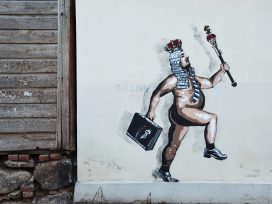
Unmasking naked delusion
Tangent
Ever been had? Led to believe a lie, an untruth? Realized the con too late? It can happen to anyone. Deception is rife. But so too is delusion. ‘Tangents’, a new Eurozine editorial feature, takes a critical look at the duplicitous pair.
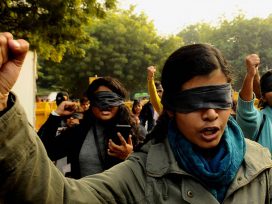
Pandemic rape in India
The corona crisis, informal gendered support and vulnerable migrant women
Staying home may reduce COVID-19 infection but is not the safest place for all – women with violent partners are more at risk of abuse during lockdown. And solidarity is crucial. Atreyee Sen addresses the critical situation in India, where women are also being attacked in institutions and when forced to migrate.
